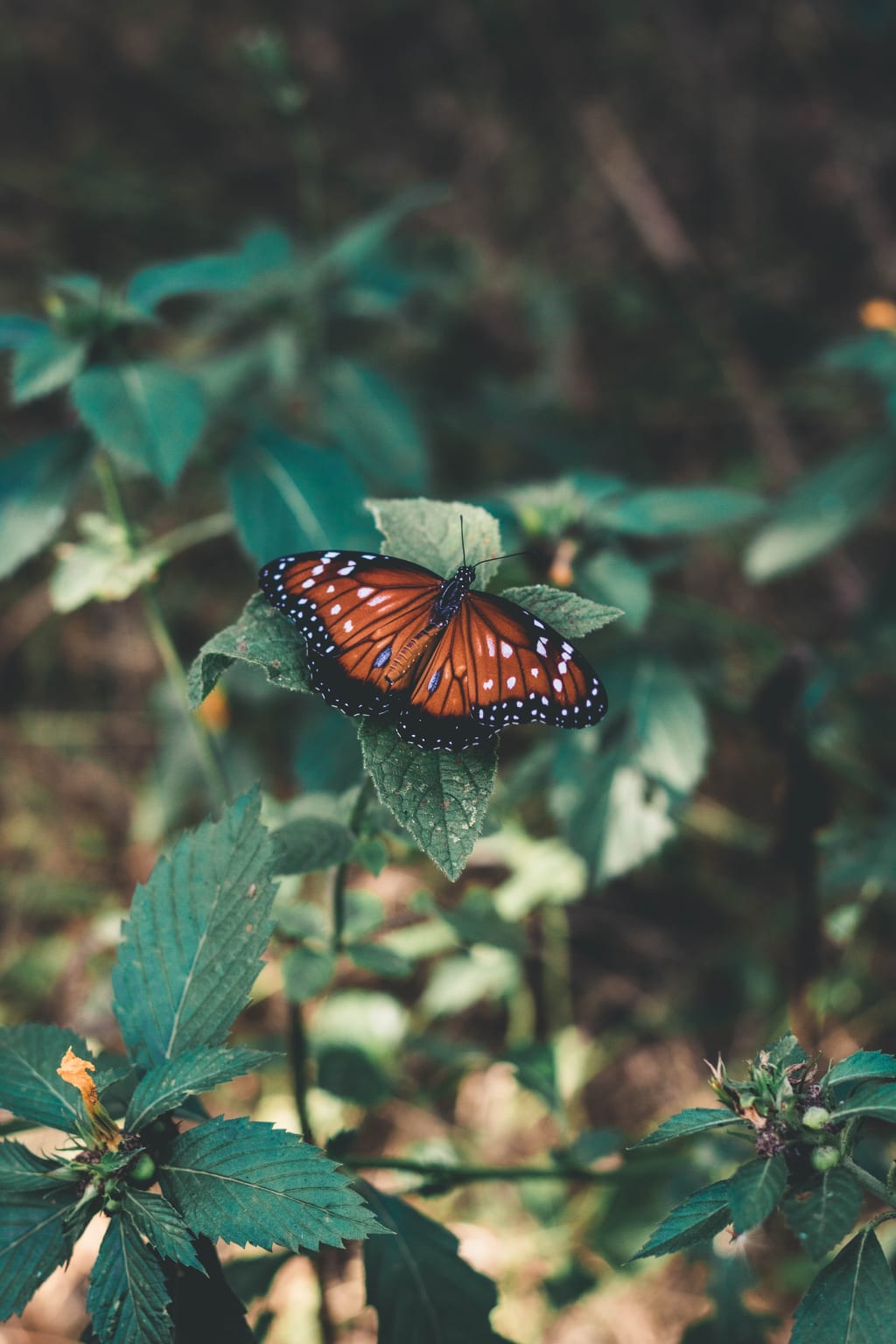
"They paved paradise, and put up a parking lot"...
First, They took the butterflies. It was a smart move – small and unnoticeable. After all, how often does a butterfly land on you anyways?
You see, the Commodity Crisis only lasted for three months– one of the shortest wars we’ve ever had – yet everything is different. They want it to be Big Better Best. Big, Better, Best. By the year 3000 They have proposed that the world will be bigger, better and more beautiful than it was before the Crisis. There will be no more disputes about trade, no more poverty induced by warfare and no more unemployment. However, the grandest promise of all, the promise that held providence over all other promises, is that the world will be beautiful. Indescribably beautiful. And it all started with those butterflies.
The bus was on time as usual. Efficiency is the newest catchcry alongside beautification and acai bowls. These were all the craze. Everyone on the bus looked glamorous, you couldn’t even tell that half of them were my colleagues at the café. It would be abysmal for anyone to look anything less than glamorous, after all, They gave us an extra 2 hours in our day dedicated solely to the beautification of ourselves. The first was in the morning. From 6:00-7:00am, we beautify our bodies. Makeup, clothes, accessories. The second occurred right before our scheduled bedtime. From 8:00pm-9:00pm, we would read, meditate or pray. Any religion, any deity, any culture. As long as we did something, we were considered beautified. Hair-brushing, nail-painting, rouge-applying beings. That is what we became. There was something comforting about knowing everyone around you would partake in these same rituals simultaneously. Now we go to work.
The ride to the café was familiar. Familiar streets and houses and trees. Familiar signpost and billboards and advertisements on other busses (of which passengers rarely seemed to wave back). The commute took exactly 24 minutes from my apartment to the café. There were three stops- all of them to museums. The first stop after 6 minutes was the Museum of Flora, followed by the second stop after 9 minutes, the Museum of Household Objects. Finally, there was the museum of Fauna. (It always seemed to baffle me how the Museums of Flora and Fauna were not a stop apart). There weren’t that many two decades ago. Of course, there was the occasional museum of modern art, or a national museum reserved in a desolate corner in a disappearing town. These are nothing like those, for in these museums, they held everything that has ever been considered beautiful to be preserved for many generations to come. It started with the butterflies, but now they have my Isaac.
"They took all the trees, and put them in a tree museum..."
Six days of the week are steeped in darkness, apart from of course the dim yellow lights that signified a bus station. I am still not entirely accustomed to the darkness, as it is a new concept, for sunsets and sunrises are now part of the Museum of Natural Beauty. Clocks would chime every hour, on the hour, in order to notify us of the time. Everyday we are clothed in the veil of the dark, like a neglected canine, forced to reside in its' own excrement. The only day this veil would be lifted is on Sundays - a reward for enduring the Collections. Some weeks, I would rather stay under the veil than endure the sunset. For under the premise of darkness, there was warmth, security, stability. There was beauty.
"They charged the people a dollar and a half to see them."
Sunday night comes along quicker than expected. Long gone were the days of weekends in which we drowned our sorrows in drink and laughed more than we did during the week. No. Weekends are now filled with weeping and the gnashing of teeth - or at the very least, the Collections. Just as the sun and moon used to be punctual in their apparitions, so were the Collectors of Beauty. At 9:00pm each Friday night, they would make their rounds to each household and each business. No alleyway, bus station or sidewalk crack were safe as each were scoured for any drop of beauty remaining after the Commodity Crisis. After collection, each item would be shipped to its respective museum. For instance, flowers would arrive at the Museum of Natural Beauty (right alongside the butterflies), music would appear at the Museum of Musical and Instrumental Beauty and, I assume my silver heart-shaped locket would be displayed at the Museum of Extraordinary Mundane Objects. This was normal. This was expected. This was permissible. The collectors started to change their course. This was when they started collecting beautiful people. The ink of the sky turned from an all consuming jet-black to crimson reds and burnt oranges, end of the Collections. The mesmerising heavens were rancorous. Hearts across the world were filled with misery.
And so it continues, the cycle of beautifying, collecting and mourning. It is a simple cycle, one that They suppose will make this world Big, Better, Best. And for a small price, we are able to visit these museums that hold the epitomy of beauty within their glass cages. For now, we still have smiles exchanged between strangers, the sound of music from a child practicing their piano and smells of homecooking after a long day of organising artefacts. For now, we still have these simple snippets of everyday life, and these are truly beautiful.
Now we wait...
"Don't it always seem to go, They don't know what They've got 'til it's gone. They paved paradise, and put up a parking lot."





Comments
There are no comments for this story
Be the first to respond and start the conversation.